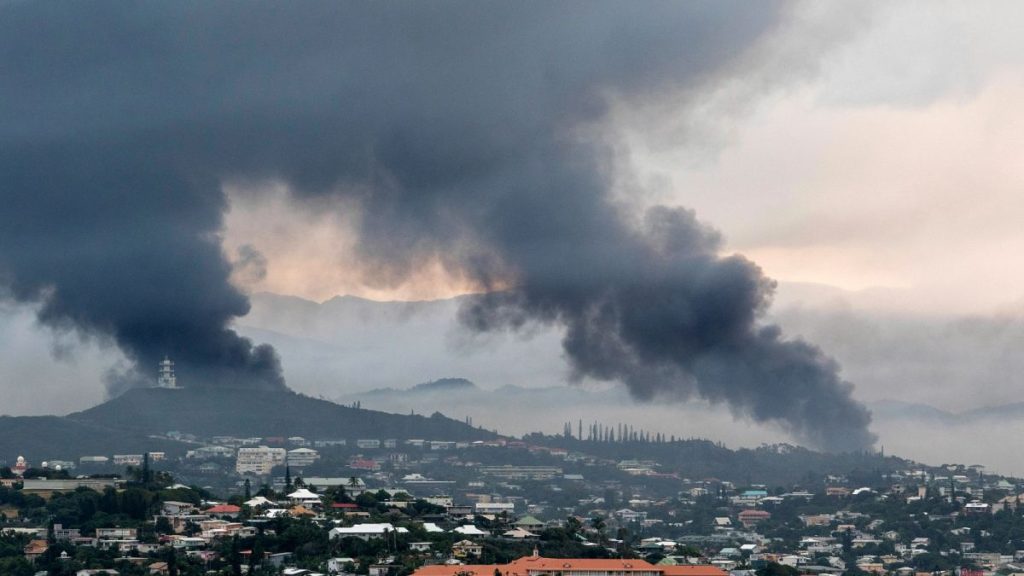The French overseas territory of New Caledonia in the southwest Pacific Ocean has been experiencing violent clashes and looting for over a week due to a proposed voting system reform by the French government. The reform aims to amend the voter lists in New Caledonia, which has sparked fears among opponents that it will benefit pro-France politicians and further marginalize the indigenous Kanak population. Violent unrest began on May 13, leading to six deaths, including two police officers, and hundreds of injuries. The situation has prompted the French President Emmanuel Macron to visit the island, with Prime Minister Gabriel Attal also scheduled to travel there in the coming weeks.
The proposed changes to the French Constitution have led to widespread discontent among the residents of New Caledonia, with many fearing that the reform will negatively impact the indigenous Kanak population. The Kanak people have a history of suffering from strict segregation policies and discrimination, and are concerned that the reform will exacerbate their marginalization. The violent clashes and looting that have ensued since the announcement of the reform have resulted in multiple deaths and injuries, as well as significant damage to property. The French government has imposed a state of emergency and a curfew on the island, with commercial flights to and from the airport suspended.
The escalating violence in New Caledonia has prompted neighboring countries like Australia and New Zealand to evacuate their citizens from the island. The situation has raised concerns about the stability of the region and the potential for further violence and unrest. The international community is closely monitoring the situation in New Caledonia, with many calling for a peaceful resolution to the conflict. The presence of French President Macron and Prime Minister Attal on the island is seen as a crucial step towards addressing the underlying issues and finding a way forward that is acceptable to all parties involved.
The unrest in New Caledonia has drawn attention to the complex social and political dynamics of the region, highlighting the ongoing tensions between the different ethnic groups and the challenges of governance in a multicultural society. The proposed voting system reform has exacerbated existing divisions and raised questions about the future of New Caledonia as a French overseas territory. The violence and loss of life that have occurred as a result of the unrest have underscored the need for dialogue and reconciliation among the various communities on the island. The international community is hopeful that a peaceful resolution can be reached that addresses the concerns of all parties involved and paves the way for a more stable and harmonious future for New Caledonia.
The situation in New Caledonia has brought to the forefront the issue of colonialism and its lingering effects on indigenous populations around the world. The history of New Caledonia as a French colony has left a legacy of discrimination and inequality that continues to impact the lives of the Kanak people. The proposed voting system reform has reignited debates about representation and autonomy for indigenous communities in the territory, and has raised important questions about the relationship between France and its overseas territories. The international community is watching closely to see how the conflict in New Caledonia will be resolved and what implications it may have for other colonial regions grappling with similar challenges.
As the French President and Prime Minister visit New Caledonia in an effort to address the ongoing unrest, there is hope that a peaceful resolution can be achieved through dialogue and negotiation. The presence of high-level French officials on the island signals a commitment to finding a solution that is acceptable to all parties involved and that addresses the concerns of the indigenous population. The international community stands ready to support efforts to peacefully resolve the conflict in New Caledonia and to work towards building a more inclusive and equitable society for all residents of the territory. The coming weeks will be crucial in determining the future of New Caledonia and in shaping the relationship between France and its overseas territories in the Pacific region.


